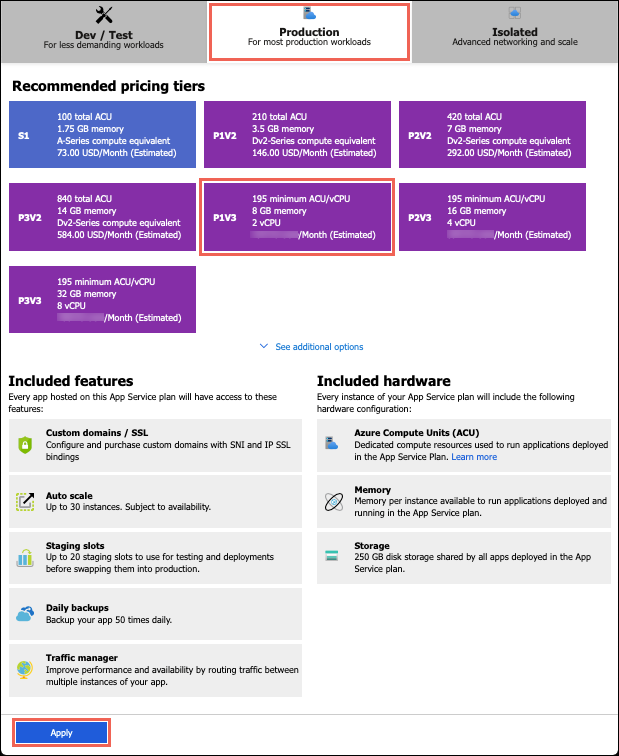
MMS • Steef-Jan Wiggers
Microsoft recently announced two new offerings in the Premium v3 (Pv3) service tier and expansion in the Isolated v2 tier of Azure App Service.
Azure App Service is an HTTP-based service hosting web applications, REST APIs, and mobile backends written in languages such as .NET, .NET Core, Java, Ruby, Node.js, PHP, and Python. In addition, it offers auto-scaling and high availability, support for both Windows and Linux, and enables automated deployments from GitHub, Azure DevOps, or any Git repo.
The App Service now offers a Pv3 service tier to provide enterprises with an additional new series of memory-optimized P*mv3 plans, designated as P1mv3, P2mv3, P3mv3, and so forth. These plans offer the flexibility to increase memory configuration without incurring additional core costs. In addition, these plans range from two virtual cores with 16 GB RAM in P1mv3 (compared to two cores, 8 GB RAM in P1v3) to 32 virtual cores with 256 GB RAM in P5mv3.

Source: https://learn.microsoft.com/en-us/azure/app-service/app-service-configure-premium-tier
Besides the memory-optimized plans, the premium also includes a cost-effective P0v3 plan, which according to the company, delivers significantly higher performance at a similar monthly cost compared to the Standard plan or Premium v2 (Pv2) plan. Furthermore, the company states that the P0v3 plan allows customers to use Azure savings plans and reserved instance (RI) pricing—only available on the Premium v3 tier—for up to 55 percent more savings than the pay-as-you-go plan.
Also, the cost management documentation of Azure App Service mentions:
In fact, Premium V3 (the highest non-Isolated tier) is the most cost effective way to serve your app at scale. To add to the savings, you can get deep discounts on Premium V3 reservations.
In addition to premium plans, Microsoft offers enterprises with stringent security and compliance requirements the App Service Environment (ASE), which grants them precise control over incoming and outgoing traffic of their applications’ networks. Unlike the shared, multi-tenant service, the App Service Environment exclusively hosts applications from a single customer and is powered by the Isolated v2 (Iv2) plans.
The lv2 plans are now expanded with three new Isolated v2 plans – the I4v2, I5v2, and I6v2, which offer compute options ranging from 16 virtual cores with 64 GB memory to as many as 64 virtual cores with 256 GB memory.
Pricing and availability details of Azure App Service are available on the pricing page. Additionally, Microsoft states in the documentation regarding Premium V3 that availability will extend continually to more Azure regions.